#jose garcia villa
Explore tagged Tumblr posts
Text
I shall talk to you through trees, through the arms of dancers, through sweet words uttered by many lovers.
The arms of dancers round you shall be my arms.
The eyes of men admiring you shall be my eyes.
I have many arms, many eyes.
It is that, loving you, I have become many lovers
Jose Garcia Villa, Doveglion: Collected Poems
1 note
·
View note
Text
0 notes
Text
0 notes
Text
youtube
Alberto Ginastera (196-1983) - Doce Preludios Americanos (Twelve American Preludes) for Piano, Op. 12 (1944)
I. Para los acentos (Accents) II. Triste (Sadness) III. Danza Criolla (Creole Dance) IV. Vidala V. En el primer modo pentafono menor (In the first Pentatonic Minor Mode) VI. Homenaje a Roberto Garcia Morillo VII. Para las octavas (Octaves) VIII. Homenaje a Juan Jose Castro IX. Homenaje a Aaron Copland X. Pastoral XI. Homenaje a Hector Villa-Lobos XII. En el primer modo pentafono mayor (In the first Pentatonic Major Mode)
Roberto Russo, piano
8 notes
·
View notes
Text
Hilarious Football Facts You Probably Didn't Know!
Football, the beautiful game, is full of intense moments, incredible skill, and... a lot of funny facts! Here are some of the quirkiest and most amusing facts from the world of football that will make you chuckle:
The Longest Goal Ever Scored: In 2013, Stoke City goalkeeper Asmir Begović scored a goal just 13 seconds into a match against Southampton. The ball traveled an astonishing 91.9 meters (100.5 yards). Talk about putting your foot in it!
The Strange Case of the Expanding Pitch: The home pitch of Sheffield United, Bramall Lane, had a bizarre tradition. During halftime, the pitch used to be widened! This was possible because Bramall Lane was originally a cricket ground, and the boundary ropes would be pulled back for the second half.
When a Referee Scored a Goal: In 2001, a referee named Jose Maria Garcia-Aranda awarded himself a goal during a match between Deportivo La Coruña and Real Madrid. The ball ricocheted off him and into the net. Thankfully, the goal didn't stand!
The Dog Who Stopped a Match: In 1962, a stray dog ran onto the pitch during a World Cup match between Brazil and England. Despite several attempts to catch it, it was Jimmy Greaves who finally succeeded. As a thank-you, the dog promptly peed on him.
Red Card for... Farting: In 2009, a Swedish footballer was sent off for farting. Yes, you read that right. The referee considered it unsportsmanlike behavior and showed him a second yellow card. The player later clarified it was an accident due to a stomach upset.
Own Goal King: Richard Dunne holds the record for the most own goals in the Premier League, with 10. He turned this unfortunate record into a kind of art form.
The Chicken on the Field: Blackburn Rovers fans once released a live chicken onto the pitch during a match against Wigan Athletic to protest against the club’s owners, who happened to be poultry farmers. The match was briefly halted as players and officials tried to catch the runaway fowl.
The Missing World Cup Trophy: The World Cup trophy was stolen in 1966, just before the tournament in England. It was found seven days later by a dog named Pickles, who became a national hero overnight.
The 149-0 Match: In a bizarre protest against refereeing decisions, Madagascar club SO l'Emyrne deliberately scored 149 own goals in a match against AS Adema in 2002. That’s one way to show your displeasure!
The Manager's Half-Time Pep Talk: Former Aston Villa manager Ron Atkinson once gave an inspiring halftime speech... to the wrong team. He entered the opponents’ dressing room by mistake and only realized his error after several minutes of confused looks.
Football is not just about goals, glory, and heartbreak; it's also filled with moments of humor and absurdity. These funny facts remind us that sometimes, the best part of the game is the unexpected laughter it brings.
CLICK HERE
2 notes
·
View notes
Text

MY REMARKABLE WRITERS
2 Remarkable Filipino Writers in the Different Periods in Philippine Literature
A vast and varied body of writings, Philippine literature reflects the history, culture, and customs of the nation. Over the years, a number of superior writers have come out of the Philippines, establishing works that have won over readers both domestically and abroad. Two of the most notable Filipino authors from various eras of Philippine literature will be highlighted in this introduction.
In the Period of Enlightenment (1872–1888), the Filipino spirit was reawakened after 300 years of apathy under Spanish control when three priests, Gomez, Burgos, and Zamora, were guillotined without adequate evidence of guilt.
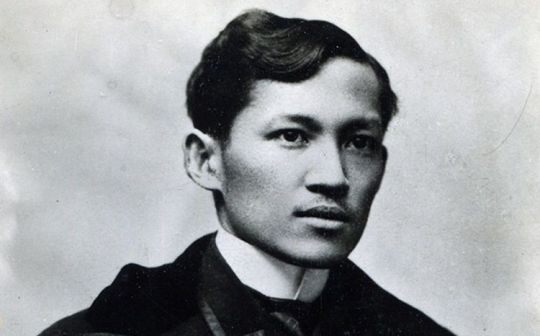
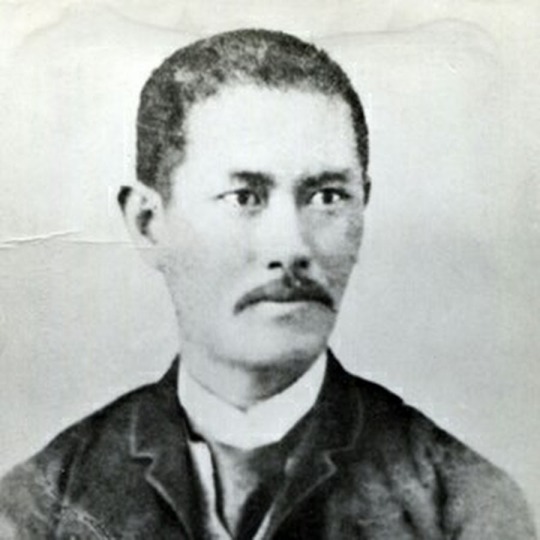
Dr. Jose Rizal was a nationalist, author, and revolutionary from the Philippines who inspired a movement for Philippine independence. His legacy has continued to motivate Filipinos to fight for social justice and independence.
Graciano Lopez Jaena was a key figure in the late 19th-century Philippine independence movement, rising to prominence in the Propaganda Movement. He was persecuted and exiled, but never wavered in his dedication to the nationalist cause.
Dr. Jose Rizal and Graciano Lopez Jaena were both influential figures in the Philippine nationalist movement during the late 19th century. Both Rizal and Lopez Jaena were important figures who played a key role in the development of Philippine nationalism and the struggle for independence from Spanish colonial rule. Their works and ideas continue to inspire and influence Filipinos today.
Consequently, the American Regime (1898–1944) was heavily influenced by American culture and values, resulting in a shift from traditional forms to modern and westernized styles. English became the dominant language of literature, replacing Spanish, and many writers adopted the themes, forms, and techniques of American writers.

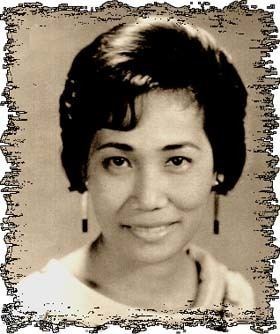
This period saw the emergence of notable writers such as Jose Garcia Villa and Paz Marquez-Benitez, who explored diverse themes such as identity, colonialism, and social justice. Despite its American influence, Philippine literature during this time also reflected the unique experiences and struggles of the Filipino people under colonial rule.
Jose Garcia Villa was a Filipino poet, author, and visual artist renowned for his avant-garde writing style and influence on generations of authors and poets.
Paz Marquez-Benitez was a Filipino author and educator born in 1894 who wrote "Dead Stars" and contributed plays, short stories, and essays to publications. She died in 1983.
Both Marquez-Benitez and Villa were important figures who helped establish Philippine literature in English as a vital part of the country's cultural heritage. Through their writing and criticism, they contributed to the growth and development of modern Filipino literature and helped pave the way for future generations of writers.
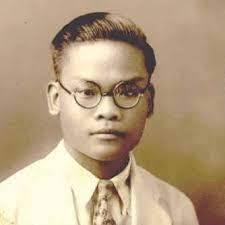
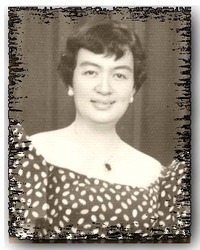
After the Americans, the Japanese Period from 1941 to 1945 entered. One of the two remarkable writers during this period was Juan Laya who is unable to adapt to the Japanese occupation and become a prolific writer in Filipino, contributing to Philippine literature and social realism.
And one of the most important authors in Philippine literature Liwayway Arceo is a well-known Filipino author who examines social and political concerns in her short tales and novels, such as "Lupang Tinubuan".
Both Laya and Arceo were important figures who helped shape Philippine literature during the Japanese period. Through their works, they captured the complexities of life under occupation, and helped preserve and promote the Filipino language and national identity during a time of great challenge and upheaval in the country's history.
In this period, it involves and introduces the poems Haiku, Tanka, Tanaga, and Karaniwang Uri, which are known in this new century.
Alternatively, Philippine literature in English from 1941 to 1945 was halted because of the strict Japanese prohibitions on the writing and publishing of works in English. Philippine literature in English experienced a dark period. But there were two unforgivable and remarkable writers during this dark period.
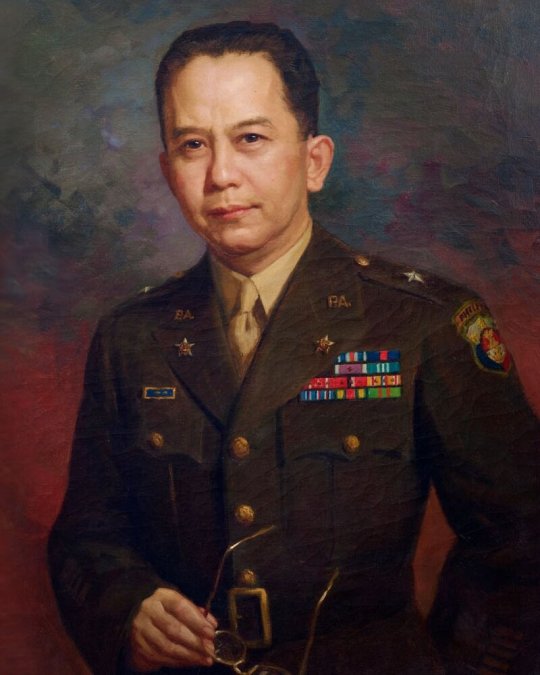
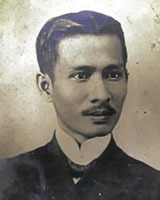
This period was connected to the American Regime, where there are three sub-periods: the Period of Re-Orientation (1898–1902), the Period of Imitation (1910–1923), and the Period of Self-Discovery (1925–1941), where there are two remarkable writers, Fernando M. Maramag and Carlos P. Romulo, who are the pioneering English poets during this period.
One of the founders of contemporary Filipino poetry Fernando M. Maramag was a founding figure of contemporary Filipino poetry, using English language and a formalist style to explore the struggles of a young woman in the country.
Another one, Carlos P. Romulo was a Filipino diplomat, journalist, author, and politician who achieved significant accomplishments for his nation, both domestically and internationally.
Overall, both Maramag and Romulo were important figures who made significant contributions to the development of Philippine literature in English during the period from 1941 to 1945. Through their works, they helped to establish and shape the literary culture of the country, and their legacy continues to inspire and influence Filipino writers today.
Following that, the Filipino youth are awake during the Period of Activism, known as the Bloody Placards Period from 1970 to 1972. Pociano Pineda claims that domestic and international issues contributed to the 1970–1972 youth activism. Activism and our country's history are intertwined. Pineda added that the youths had demonstrated at this point that our nationalism and race are not formed by perpetual denial. The amount of patience one has is limited. If overworked, it can erupt like a volcano.
However, the New Society Period from 1972 to 1980 approached, and it was interconnected to the Period of Activism, where the Green Revolution, family planning, a healthy diet, the environment, drug addiction, and pollution are just a few examples of subjects that were almost universally related to how the country was developing or progressing. The New Society made an effort to stop pornography and other publications that had a negative impact on people's morals. The school organizations and all newspapers were temporarily suspended.
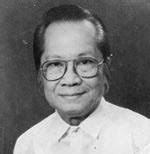

Because of that, the two remarkable writers facing this period are Ponciano Pineda was a poet who was known for his socially relevant poetry that tackled themes such as poverty, oppression, and the struggle for social justice. His works often highlighted the plight of the poor and marginalized members of society, making his poetry an important vehicle for social critique and commentary during this period.
Aniceto Silvestre, on the other hand, was a poet and literary and cultural critic who played a key role in shaping the development of Philippine literature during this period. He wrote a number of influential works on Philippine literature, including "Philippine Literary Criticism," which remains an essential resource for students and scholars of Philippine literature.
Overall, both Pineda and Silvestre made important contributions to Philippine literature during the New Society Period from 1972 to 1980. Through their works, they helped to shape the literary and cultural landscape of the country, and their influence continues to inspire and influence contemporary Filipino writers today.
Then came the Period of the Third Republic from 1981 to 1985, when the lifting of military rule in the Philippines led to a new nation known as the "New Republic" or "Third Republic," as our late President Ferdinand E. Marcos proclaimed during this period.
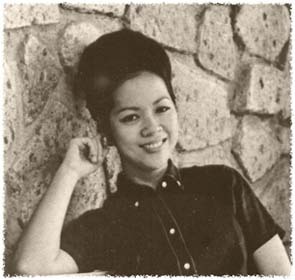
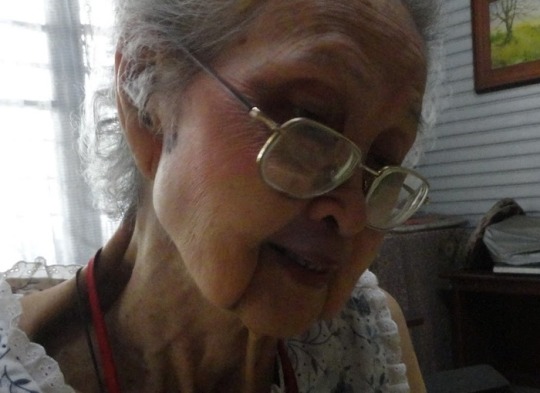
The two most remarkable writers during this period are Gilda Cordero-Fernando is a well-known writer, publisher, and cultural icon who has published extensively on topics such as women's issues, Philippine culture, folklore, and history.
Damiana L. Eugenio was a Filipino folklorist and literary expert who specialized in Philippine folklore, mythology, and stories. She received numerous honors for her contributions to Philippine culture and literature, including "Philippine Folk Literature".
Both Eugenio and Cordero-Fernando were instrumental in shaping the literary and cultural landscape of the Philippines during this period. Through their works, they helped to preserve and promote traditional Philippine culture and literature, while also addressing the contemporary concerns and issues of the time. Their contributions continue to inspire and influence contemporary Filipino writers today.
In the year when the Post-EDSA 1 Revolution (1986-1985) was published, journalism underwent a change from years of "guided newspapering" to free and ethical reporting. The "establishment" publications that supported Marcos shut down, while the alternative press rose to prominence.
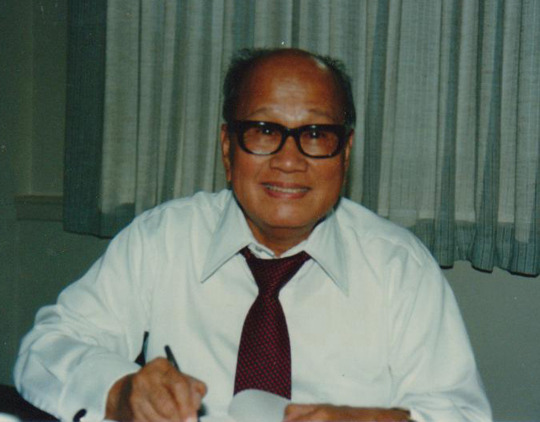
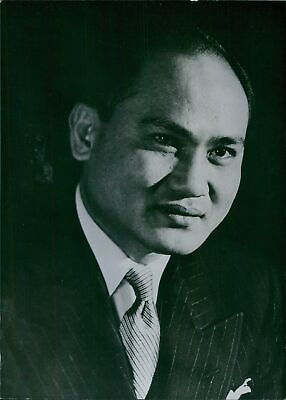
During this time, two remarkable writers were Bienvenido N. Santos was a Filipino-American writer, professor, and diplomat known for his works that addressed the lives of Filipino immigrants in America and the Philippines, such as "March of Death".
Lastly, Salvador P. Lopez was a writer, journalist, and educator who played a key role in shaping the development of Philippine literature and culture in the post-World War II era. He is best known for his influential essay, "Literature and Society," which argued for the importance of literature as a means of cultural expression and social criticism. Lopez also served as the first Philippine ambassador to the United Nations.
Overall, both Santos and Lopez made important contributions to Philippine literature during the period Post-EDSA 1 Revolution. Through their works, they helped to shape the literary and cultural landscape of the country, and their influence continues to inspire and influence contemporary Filipino writers today.
The literature of the Philippines has a long and varied history that reflects the culture, traditions, and struggles of the country.
Famous authors have contributed to the growth and evolution of Philippine literature from the Enlightenment to the Third Republic. Crafted by Jose Rizal, Graciano Lopez, Jose Garcia Villa, Paz Marquez-Benitez, Liwayway Arceo, Fernando M. Maramag, Carlos P. Romulo, Ponciano Pineda, Aniceto Silvestre, and Gilda Cordero-Fernando proceed to move and teach pursuers both locally and globally.
These authors have contributed to the development of a variety of literary forms, including poetry, short stories, essays, and plays, and they have investigated topics like identity, colonialism, social justice, and activism. Literature in the Philippines continues to be a vibrant and dynamic art form that adapts to the nation's challenges and shifting times.
9 notes
·
View notes
Text
𝙏𝙬𝙤 𝙞𝙣 𝙊𝙣𝙚 👩🏻🏫🤱🏻: 𝙒𝙝𝙖𝙩 𝙞𝙩'𝙨 𝙡𝙞𝙠𝙚 𝙩𝙤 𝙗𝙚 𝙖𝙣 𝙀𝙣𝙜𝙡𝙞𝙨𝙝 𝙈𝙖𝙟𝙤𝙧 𝙖𝙣𝙙 𝙖 𝙁𝙪𝙡𝙡 𝙏𝙞𝙢𝙚 𝙈𝙤𝙢 ✨️

Hello, Folks!
𝘞𝘦𝘭𝘤𝘰𝘮𝘦 𝘵𝘰 𝘵𝘩𝘦 𝘧𝘳𝘦𝘴𝘩𝘭𝘺 𝘣𝘢𝘬𝘦𝘥 𝘤𝘩𝘢𝘱𝘵𝘦𝘳 𝘪𝘯 𝘮𝘺 𝘣𝘭𝘰𝘨! 🍃🤍
Michelle D. Bonagua here! 🤩 Your 20 years old blogger from Mabalacat City College who's taking up Bachelor of Secondary Education Major in English. That does not end there folks! Did you know that I'm a full time mom to a one year old baby girl? Yes, you read that right! As I take my journey as a third year English Major, let me show you how I started to love my chosen program! <3✨️
𝙒𝙝𝙮 𝙀𝙣𝙜𝙡𝙞𝙨𝙝 𝙈𝙖𝙟𝙤𝙧? 🤔
That's the question that I usually hear from other people ever since I entered college. Mostly are from my professors, former teachers, or even relatives. So today, it is time for me to spill 🍵 the things that inspired me to become an English major. Every time people ask me why I chose this program, flashbacks from my Senior High School self will immediately arise to my mind.
Well, when I was in Senior High School, I fell in love with reading whether it is e-books or real books 📚. Whenever I read, I feel like I'm inside the book through the help of my imagination. The knowledge from my reading materials during those days fueled my artistic and imaginative side. 🌠🌈

📚 Reading can trigger your Learning. 📚
Aside from reading, I got also interested in watching foreign movies such as Maleficent, The Notebook, and Lord of the Rings. With so much time during that day, I was able to finish one novel and a movie entitled Maleficent. Without even realizing, I gradually acquire how they speak especially in using the English language. What makes me even proud of myself during that time is that my vocabulary has expanded and it made me feel powerful and it gave me confidence to speak in front of my classmates especially in reporting. 👩🏻🏫
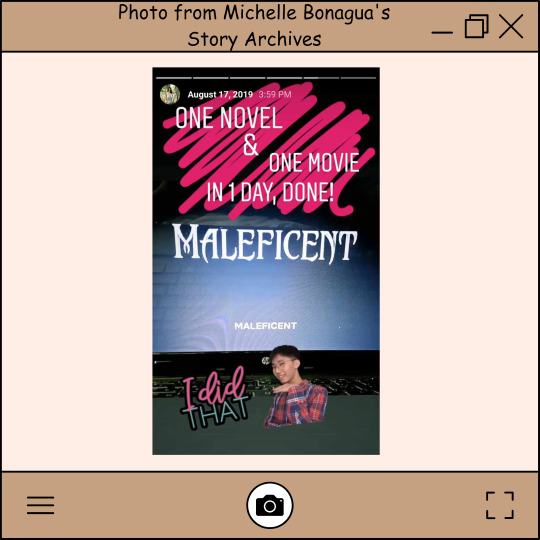
📣 Watching can improve a person's speaking skills. 📣
Through reading 📚, I was also able to reflect on what program can help me to integrate my hobbies or what I love to do which is to read and to speak. Thus, I was able to be sure that I want to become a Professional English Teacher someday. After that, there's this poem entitled "I Can No More Hear Love's" by Jose Garcia Villa which really captured my heart when I was in 11th grade. It is about love where the persona talks about things that could happen if the heart cannot love. I contemplated that time especially the possibilities if I will not choose this program. If my heart ❤️chooses other programs, I cannot love pursuing it. I cannot love finishing it. I cannot love using it. That's why after reading that poem, I made sure that I will take up the Bachelor of Secondary Education Major in English once I enter college.
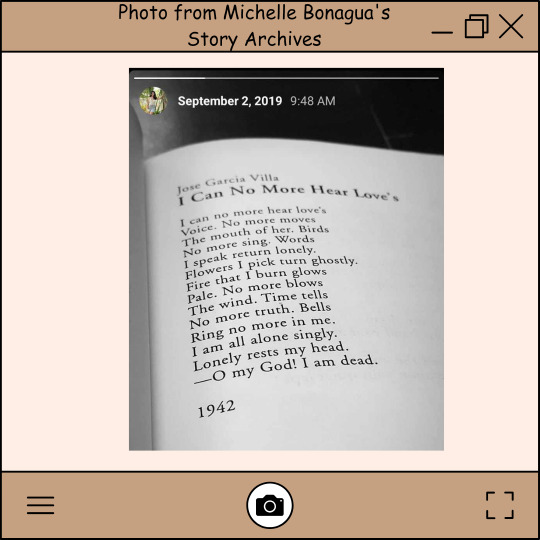
📍Reflect in order to Connect.📍
Inspiring, isn't?
But...
.
.
.
What happened next? 👇😱👇

I made it, folks! 🎊 I was able to enroll as a 1st year Bachelor of Secondary Education Major in English student BUT pandemic is still present during that time that's why we have to continue studying through online class. The new mode of learning affected my senses as a student. I felt lost and I feel like the fire within me has died. The good thing is I stayed committed in finishing my beloved program but I think that unexpected things still happen. I got pregnant 🤰🏻in my first year as an English major. I was so disappointed in myself but I accepted it wholeheartedly. I didn't want to stop studying so I fought really hard that time to have the courage to continue fighting for my dreams. ✨️👩🏻🏫
📍Continuing fighting for my dreams 👩🏻🏫 after I gave birth.🤱🏻
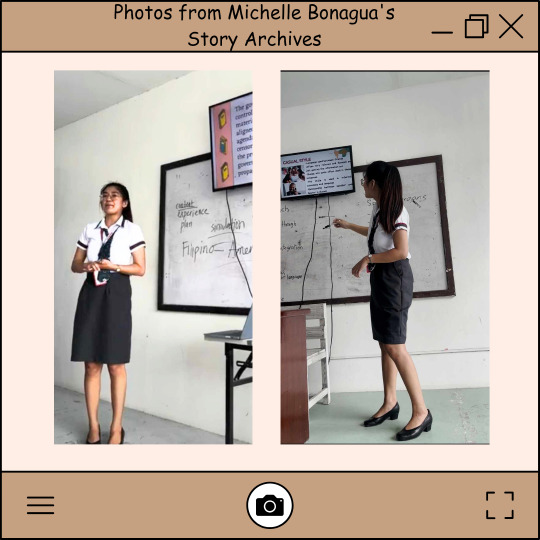
After I gave birth last 2022, it was time for me to attend irregular face to face classes for my second year as an English Major 👩🏻🏫 because the pandemic has slowly stepped out. Good thing that we are able to transition into a blended mode of learning because I was able to do the thing that I loved before which is to speak in front of many and to use the knowledge that I gain from reading. As expected, there's lots of reporting, discussion, and presentation which immediately brought my excitement 🤩 to finish this program. I learned a lot not only about our major, but also about the field of Education. I discovered that there are many literary pieces 📚 that still awaits me. Moreover, I finally realized that being an English major is really a challenging 🙏 when it comes to worksheets and performances in order for us to be a competent educator someday.
👩🏻🏫 Favorite Reporting ⭐️

I remember this time. It is an evening class from what we call POPLIT. My group partner and I were able to report this properly by using the English Language during the ENTIRE discussion 👩🏻🏫🙏. I was so proud of myself to the point that I immediately kissed my 1 year old daughter when I went home. 🤱🏻❤️
𝙒𝙤𝙬! 𝙀𝙣𝙜𝙡𝙞𝙨𝙝 𝙈𝙖𝙟𝙤𝙧 𝙖𝙣𝙙 𝙖 𝙁𝙪𝙡𝙡-𝙩𝙞𝙢𝙚 𝙢𝙤𝙢! 😍 𝙄𝙨𝙣'𝙩 𝙩𝙝𝙖𝙩 𝙝𝙖𝙧𝙙?
ABSOLUTELY #CHALLENGING 🙏
𝙇𝙞𝙛𝙚 𝙞𝙨 𝙩𝙤𝙪𝙜𝙝 for English Majors but life is tougher for a 𝙨𝙩𝙪𝙙𝙚𝙣𝙩-𝙢𝙤𝙢 like me especially that I am also an exclusive breastfeeding mother 🤱🏻. Try to imagine that after attending to your face to face classes, you have to take care of your child. That became my routine as I continuously fought for my dreams. I want to be 𝙡𝙞𝙢𝙞𝙩𝙡𝙚𝙨𝙨 especially since 𝙢𝙮 𝙙𝙖𝙪𝙜𝙝𝙩𝙚𝙧 𝙞𝙣𝙨𝙥𝙞𝙧𝙚𝙙 𝙢𝙚 𝘽𝙄𝙂 𝙏𝙄𝙈𝙀. 🙇🏻♀️
Is that it? 🤔
No, because we are...
Integrating my English Major and Motherhood 👩🏻🏫🔛🤱🏻

𝙔𝙀𝙎 𝙁𝙊𝙇𝙆𝙎! 𝙄 𝘿𝙄𝘿 𝙏𝙃𝘼𝙏! ✨️📚💁🏻♀️
English Majors are known for:
Their communication skills.
Their artistic way of teaching; and
Their teaching strategies and competencies.
As an English Major and a Full-time Mom, it is my duty 🫡 to nurture my child in many aspect because 𝙟𝙪𝙨𝙩 𝙡𝙞𝙠𝙚 𝙩𝙚𝙖𝙘𝙝𝙚𝙧𝙨, 𝙞𝙩 𝙞𝙨 𝙤𝙪𝙧 𝙙𝙪𝙩𝙮 𝙩𝙤 𝙢𝙤𝙡𝙙 𝙡𝙚𝙖𝙧𝙣𝙚𝙧𝙨. What I usually do in order to hone Avi's skills is to apply the learnings that I acquired from our subjects. Good thing is I have an idea on how to teach a child through step by step process. 🪜🔝
▶️
But that doesn't stop there, folks! 🙅🏻♀️
⏸️
Volunteeer👩🏻🏫

In order for me to live my purpose as a future teacher 👩🏻🏫, I do also volunteer as a teacher to non-readers. My fulfillment is not just exclusively nor limited for my daughter only because 𝙄 𝙡𝙤𝙫𝙚 𝙩𝙤 𝙨𝙝𝙖𝙧𝙚 𝙢𝙮 𝙠𝙣𝙤𝙬𝙡𝙚𝙙𝙜𝙚 𝙬𝙞𝙩𝙝 𝙩𝙝𝙤𝙨𝙚 𝙬𝙝𝙤 𝙬𝙖𝙣𝙩 𝙩𝙤 𝙡𝙚𝙖𝙧𝙣 ⚙️. Being an English major helped me to become an instrument for learning and developing one's skills and abilities 🖌. For me, this kind of activity could be considered as a give and take 🔄 action because I'm able to utilize my essence as a teacher by teaching them how to read while they are gaining the knowledge that I was able to transmit which can 𝙀𝙈𝙋𝙊𝙒𝙀𝙍 and 𝙄𝙉𝙎𝙋𝙄𝙍𝙀 them to become successful. Through my help, they can also be 𝙇𝙄𝙈𝙄𝙏𝙇𝙀𝙎𝙎. 🌈🌠
Who would have thought that I will come this far? The girl who loves to read during her Senior High School years just because she feels 𝙥𝙤𝙬𝙚𝙧𝙛𝙪𝙡 💁🏻♀️ whenever she learn new words is now the one who's ready to 𝙀𝙈𝙋𝙊𝙒𝙀𝙍 ⭐️ other people. ✨️📚
That ends this chapter of my blog. I hope that I was able to transmit a bucket of inspiration ✨️🫡. Until our next reading! 🤍 XoXo
-Michelle B.
2 notes
·
View notes
Text
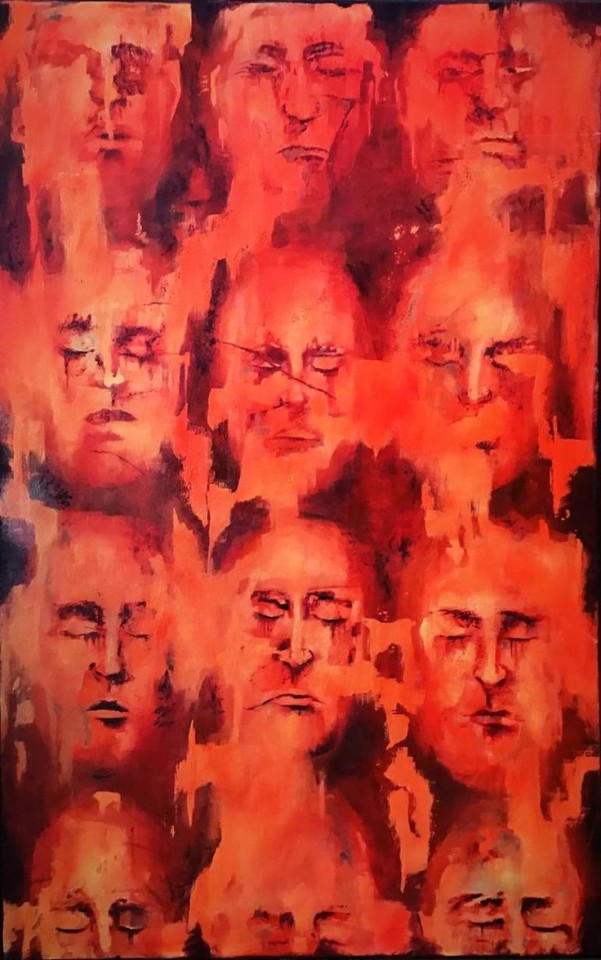
2 remarkable writers in different period and their contribution.
Period of Activism:
Lualhati Bautista - is a Filipino writer and feminist who wrote about the struggles of women and marginalized sectors during the Martial Law era. Her most famous work, Dekada '70, is a novel about a middle-class family's experiences during the Martial Law period.
Jose "Pete" Lacaba - is a Filipino writer, journalist, and activist who wrote about the social and political realities of the Philippines during the Martial Law period. His most famous work, Days of Disquiet, Nights of Rage, is a collection of poems and essays that document the protests and political repression of the era.
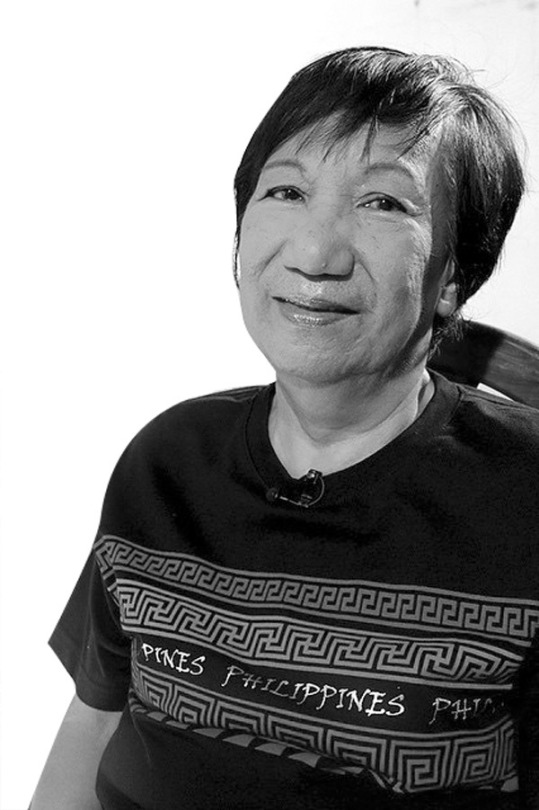
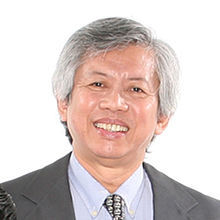
Period of New Society (1972-1986):
Jose Garcia Villa - He was a poet, short story writer, and literary critic who was known for his distinctive use of punctuation, which he called "comma poems". Villa's literary contributions during the period of the New Society include his collection of poems entitled "Selected Poems and New" and his book "Doveglion: Collected Poems".
Nick Joaquin - He was a prolific writer and journalist who wrote novels, plays, essays, and short stories. Joaquin's literary contributions during the period of the New Society include his novel "The Aquinos of Tarlac: An Essay on History as Three Generations", which explores the history of the Aquino family, and his collection of essays entitled "Culture and History".
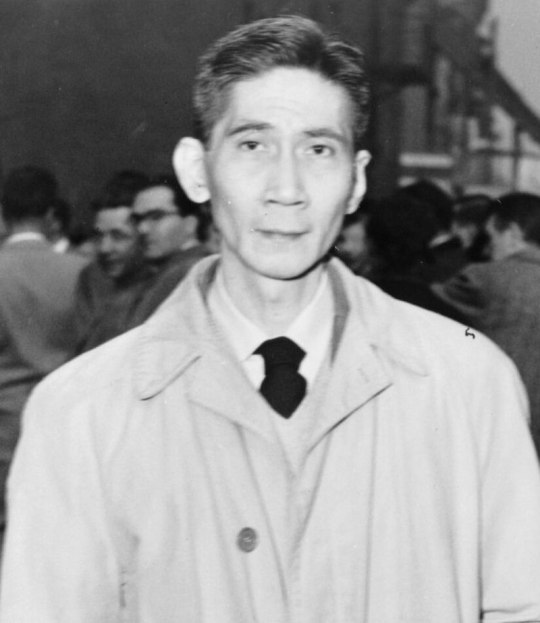
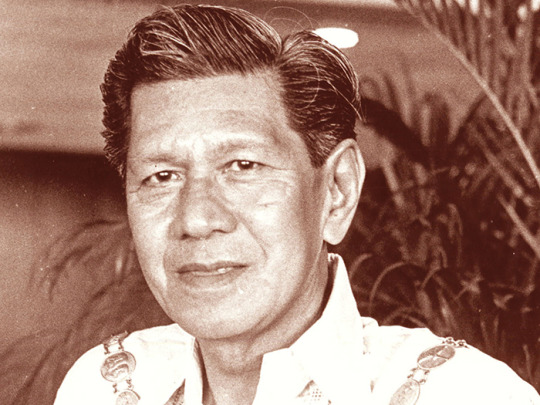
Period of Third Republic (1965-1972):
N.V.M. Gonzalez - He was a writer and critic who wrote novels, short stories, and essays. Gonzalez's literary contributions during the period of the Third Republic include his novel "The Bamboo Dancers" and his collection of essays entitled "The Novel of Justice: Selected Essays 1968-1994".
Francisco Arcellana - He was a poet, essayist, and short story writer. Arcellana's literary contributions during the period of the Third Republic include his collection of short stories entitled "The Mats" and his novel "Selected Poems".
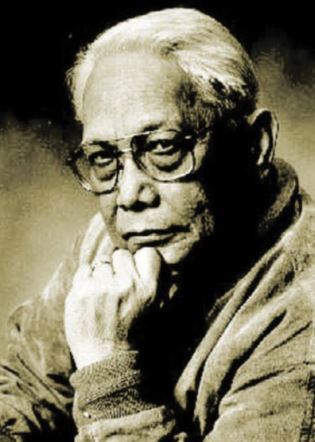
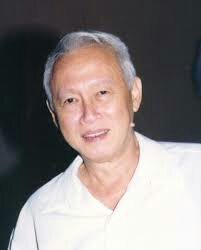
Post-EDSA 1 Revolution (1986-present):
F. Sionil Jose - He is a novelist and essayist who is best known for his series of novels collectively called "The Rosales Saga". Jose's literary contributions after the EDSA 1 Revolution include his novel "Po-on" and his collection of essays entitled "In Search of the Word: Selected Essays".
Jessica Hagedorn - She is a novelist, playwright, and poet who is known for her works that explore the experiences of Filipino immigrants in the United States. Hagedorn's literary contributions after the EDSA 1 Revolution include her novel "Dogeaters" and her play "The Gangster of Love".
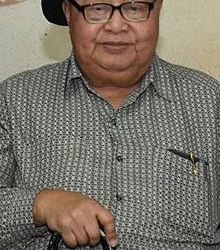
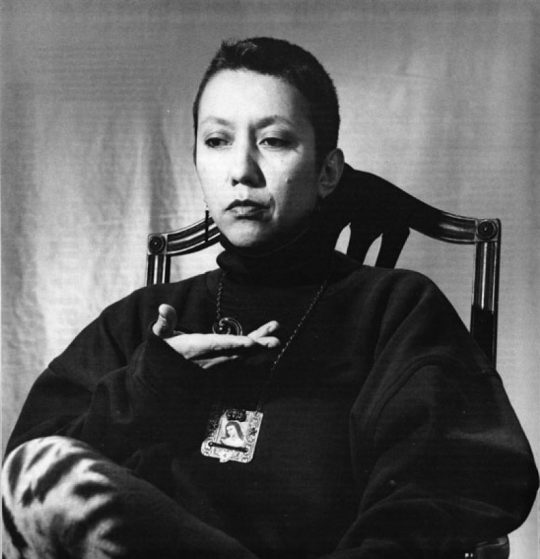
2 notes
·
View notes
Text
2 Remarkable Writers of the Philippine Literature in English
Paz M. Latorena

Paz Manguera Latorena was born on Jan. 17, 1908 in Boac, Marinduque. She was the oldest among the ten children of Magda Manguera and Ricardo Latorena. She was a notable literary and educational writer from the first generation of Filipino English writers. She was a poet, editor, author, and teacher. She completed her elementary education at Manila's St. Scholastica College and Manila South High School, also known as Araullo High School. She went to the University of the Philippines (UP) in Manila in 1926 to study education. While there, she also took a short story writing class taught by Paz Márquez-Bentez. Latorena also wrote poetry under the pseudonym, Mina Lys, which, according to Tanlayco, had a “romantic significance,” for the young writer.
Contributions :
She won the third prize for her story "The Small Key" in Jose Garcia Villa's Roll of Honor for the Best Stories of 1927 before the year was over.
She became the literary editor of the Varsitarian and published her poems, “Insight” and “My Last Song,” under her nom de plume, Mina Lys.
Paz Marquez Benitez
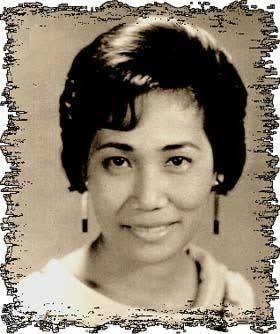
Paz Marquez Benitez was born in March 3, 1894, she was Filipino short story writer, educator and editor. She was also a former beauty queen, and both her work as a writer and her career as a woman educator are regarded as significant contributions to the advancement of women in professional fields and Philippine literature.
Contributions:
Marquez-Benitez was a writer who wrote short stories that were critical of American imperialism. Her best-known short story, Dead Stars, was published in 1925. In it, the two main characters serve as allegories of American imperialism to illustrate the gradual deterioration of Philippine heritage.
Reference:
https://en.m.wikipedia.org/wiki/Paz_Latorena
https://www.wikiwand.com/en/Paz_Latorena
https://en.m.wikipedia.org/wiki/Paz_M%C3%A1rquez-Ben%C3%ADtez
Photo source:
http://rizal.lib.admu.edu.ph/aliww/english_platorena.html
https://alchetron.com/Paz-M%C3%A1rquez-Ben%C3%ADtez
2 notes
·
View notes
Text
Ronda 22/08
B0331 - Juan Sebastian Montañez Alzate, 17 años -> Politrauma por aplastamiento, en calidad de conductor. B0334-2 - Liceth Sofia Diaz Perez, 54 años -> dolor abdominal + vomito + distensión. B0335-1 - Jose Alexander Hincapie Vera, 16 años -> Politrauma yarumal. B0335-2 - Sergio Wilman Arango Gallo, 51 años -> diverticulitis agudacomplicada. B0342-2 - Dana Melisa Garcia Manotas, 18 años -> intestino corto. B0343-1 - Berta Erlinda Rua Orrego, 51 años -> intestino corto. B0466-1 - Miladys del Carmen Rquena Acevedo, 66 años -> colelitiasis sintomatica + cirrosis hepatica Child A. B0551 - Teresa de Jesus Isaza Hurtado, 77 años -> hernia epigastrica sintomatica B0661 - Jorge Ivan Porras Gomez, 47 años -> obstrucción intestinal. B0668 - Jose Luis Garcia, 58 años -> colelitiasis + coledocolitiasis. B0669 - Jairo Ernesto, 48 años -> obstrucción intestinal. B0670 - Judy Juliette Cardona Villa, 42 años -> colecistopatia descartada, neumonia basal izquierda. B0677-2 - Maria del Rosario Puerta Rios, 76 años -> *ISO insicional profunda con material protesico (malla)
0 notes
Text
José García Villa (August 5, 1908 – February 7, 1997) was a Filipino poet, literary critic, short story writer, and painter. He was awarded the National Artist of the Philippines title for literature in 1973,as well as the Guggenheim Fellowship in creative writing by Conrad Aiken.He is known to have introduced the "reversed consonance rhyme scheme" in writing poetry, as well as the extensive use of punctuation marks especially commas, which made him known as the Comma Poet.He used the pen name Doveglion (derived from "Dove, Eagle, Lion"), based on the characters he derived from his own works. These animals were also explored by another poet, Cummings, in "Doveglion, Adventures in Value a poem dedicated to Villa.
reference:https://poets.org/poet/jose-garcia-villa
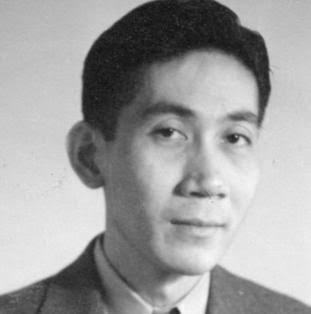
0 notes
Text
2 REMARKABLE AUTHORS DURING THE PERIOD OF SELF-DISCOVERY
MARCELO DE GRACIA CONCEPTION
M. de Gracia Concepcion was listed on the staff of the Three Stars as an editor in 1931. He was the first Filipino poet to have his collected poems published as a book in the U.S. Published in 1925 by G.P. Putnam's Sons, the book was entitled Azucena, named after a lily found in the Philippines.
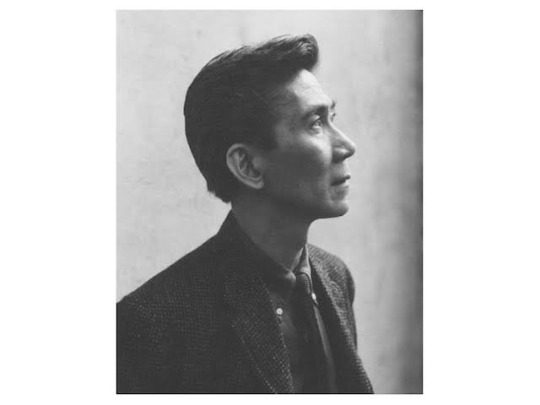
JOSE GARCIA VILLA
José Garcia Villa was born in Manila in 1908. He attended the University of the Philippines, but he was suspended in 1929 after publishing a series of erotic poems, titled “Man-Songs,” in the Philippines Herald Magazine. That same year, he won a short story contest through the Philippines Free Press and used the prize money to travel to the United States, where he studied at the University of New Mexico.
Reference:
Retrieved from: https://poets.org/poet/jose-garcia-villa
Retrieved from:https://www.commonwealthcafe.info/poetry
0 notes
Text
2 REMARKABLE WRITERS IN DIFFERENT PERIOD
The Philippine Literature in English
Carlos P. Romulo
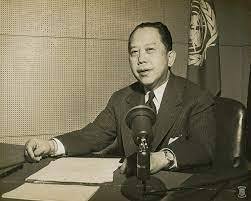
Carlos P. Romulo, or Carlos Pea Romulo, was a Philippine commander, diplomat, and journalist most known for his work on behalf of the Allies during World War II and his later work with the United Nations. He was born in Camiling, Philippines, on January 14, 1899, and passed away in Manila on December 15, 1985. Philippines, January 14, 1899 aged 86; passed away on December 15, 1985 in Manila, Philippines Prize For Literature: Pulitzer
Romulo was appointed editor in chief of TVT Publications in 1931. This organization published three newspapers, one each in English, Spanish, and Tagalog (the second most common language in the Philippines). He took over as publisher of a different chain of newspapers in 1937. Source: https://www.google.com/search?q=Carlos+P.+Romulo&tbm=isch&ved=2ahUKEwiHsKbrjNv-AhWMEYgKHST5D8MQ2-cCegQIABAA&oq=Carlos+P.+Romulo&gs_lcp=CgNpbWcQAzIFCAAQgAQyBQgAEIAEMgUIABCABDIFCAAQgAQyBQgAEIAEMgUIABCABDIECAAQHjIECAAQHjIECAAQHjIECAAQHjoECCMQJzoGCAAQBxAeOgYIABAIEB46BwgAEBgQgAQ6BwgjEOoCECdQ2gdY8RNgwBloAXAAeACAAXGIAc0BkgEDMS4xmAEAoAEBqgELZ3dzLXdpei1pbWewAQrAAQE&sclient=img&ei=TVlTZMfVKYyjoASk8r-YDA&bih=568&biw=1366&rlz=1C1CHBD_enPH1044PH1044
Jose Garcia Villa
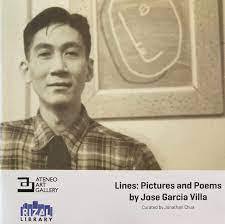
In 1908, José Garcia Villa was born in Manila. He studied at the University of the Philippines, but was expelled in 1929 after the Philippines Herald Magazine published a collection of sensual poems under the title "Man-Songs." He received a reward for winning a short story competition run by the Philippines Free Press that year, and he used it to fly to the United States to attend the University of New Mexico. Villa relocated to New York City's Greenwich Village from New Mexico. There, he became the only poet of Asian descent in a neighborhood that also included E. The modernist poets E. Cummings, W. H. Auden, and others. His Footnote to Youth: Tales of the Philippines and Others (Charles Scribner's Sons) was the first publication, published in 1933.
A significant American-based press has published a work of fiction by a Filipino author. Many Voices (Philippine Book Guild) and Poems (The Philippine Writers' League), two poetry collections by Villa, were published in the Philippines in 1939 and 1941, respectively. Have Come, Am Here (Viking Press), his first book of poetry published in the United States, was a finalist for the 1943 Pulitzer Prize. He continued to produce poetry volumes, including Poems in Praise of Love (A. S. Florentino, 1962) and Selected Poems and New (McDowell Obolensky, 1958) and Volume Two (New Directions, 1949), in the Philippines and the United States, respectively. Villa received a lot of accolades and prizes, including a Guggenheim Fellowship, a the Shelley Memorial Award, the American Academy of Arts and Letters Poetry Award, the Philippines Heritage Award, and the Rockefeller Foundation Fellowship. He was recognized as a National Artist of the Philippines in 1973, and he also advised the Philippine government on cultural matters. He passed away on February 7, 1997, in New York City.
Source: https://www.google.com/search?q=Jose+Garcia+Villa&tbm=isch&ved=2ahUKEwi9x5W_jdv-AhXYZ94KHbKxBIgQ2-cCegQIABAA&oq=Jose+Garcia+Villa&gs_lcp=CgNpbWcQAzILCAAQgAQQsQMQgwEyBQgAEIAEMgUIABCABDIFCAAQgAQyBQgAEIAEMgUIABCABDIFCAAQgAQyBQgAEIAEMgUIABCABDIFCAAQgAQ6BAgjECc6BggAEAcQHjoHCCMQ6gIQJ1DxDFjtD2CLE2gBcAB4AIABb4gB3AGSAQMwLjKYAQCgAQGqAQtnd3Mtd2l6LWltZ7ABCsABAQ&sclient=img&ei=_VlTZP3UItjP-Qay45LACA&bih=568&biw=1366&rlz=1C1CHBD_enPH1044PH1044
0 notes
Text
PERIOD OF NEW SOCIETY
TWO REMARKABLE WRITERS
1. Ponciano B.P. Pineda
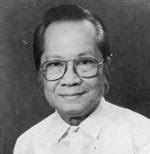
Biography: Ponciano B. Peralta Pineda is a Filipino writer, teacher, linguist and lawyer. Ponciano Pineda is considered as the "Father of the Commission on Filipino Language" for his promotion to establish a commission based on Section 9 of our Philippine Constitution. He was born on December 2, 1927 (age 95 years), San Antonio.
Contribution: He established 12 regional centers of the Filipino language throughout the Philippines
2. Jose Garcia Villa
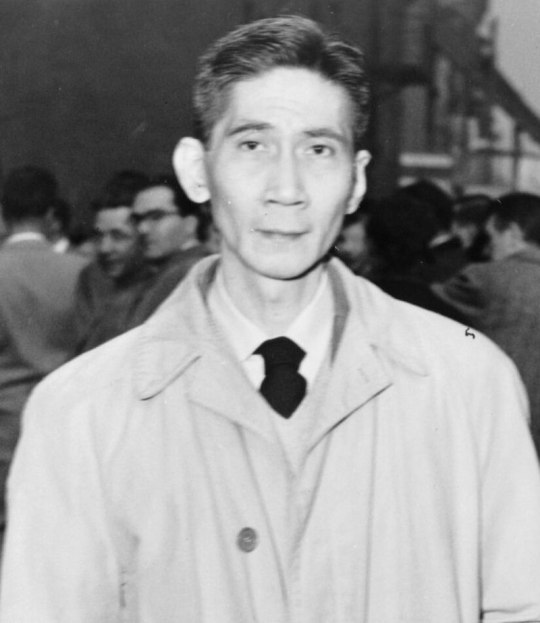
Biography: José García Villa was a Filipino poet, literary critic, short story writer, and painter. He was awarded the National Artist of the Philippines title for literature in 1973, as well as the Guggenheim Fellowship in creative writing by Conrad Aiken. He was born on August 5, 1908, Manila and he died on February 7, 1997.
Contribution: Villa has won numerous awards, including the 1973 National Art
Reference:
https://www.wikipedia.org/
0 notes
Text
2 remarkable writers in different period and their contribution.
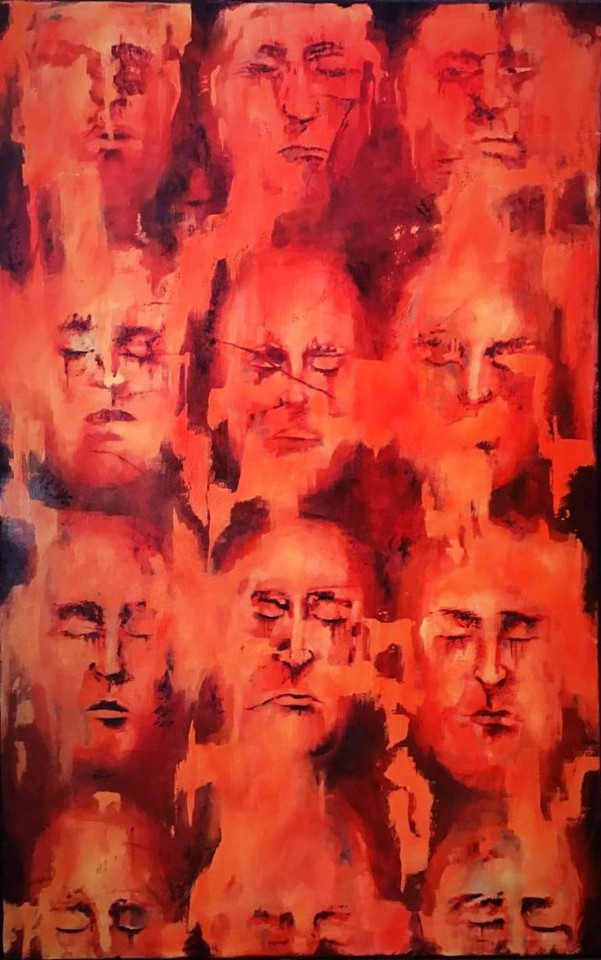
- period of Enlightenment
-period of American Regime
-Japanese period
-Philippines literature In english
Enlightenment:
José Rizal - was a Filipino polymath, nationalist and the most prominent advocate for reform in the Philippines during the Spanish colonial era. He is best known for his novels Noli Me Tangere and El Filibusterismo, which exposed the injustices and corruption of the Spanish colonial government.
Marcelo H. del Pilar - was a Filipino writer, journalist and lawyer who used his writing to expose the injustices and abuses of the Spanish colonial government. He founded the newspaper La Solidaridad, which became the voice of the Propaganda Movement, a group of Filipino intellectuals who sought reforms and advocated for Philippine independence.
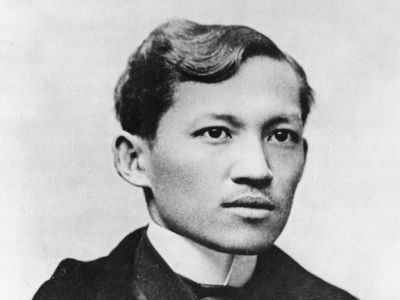
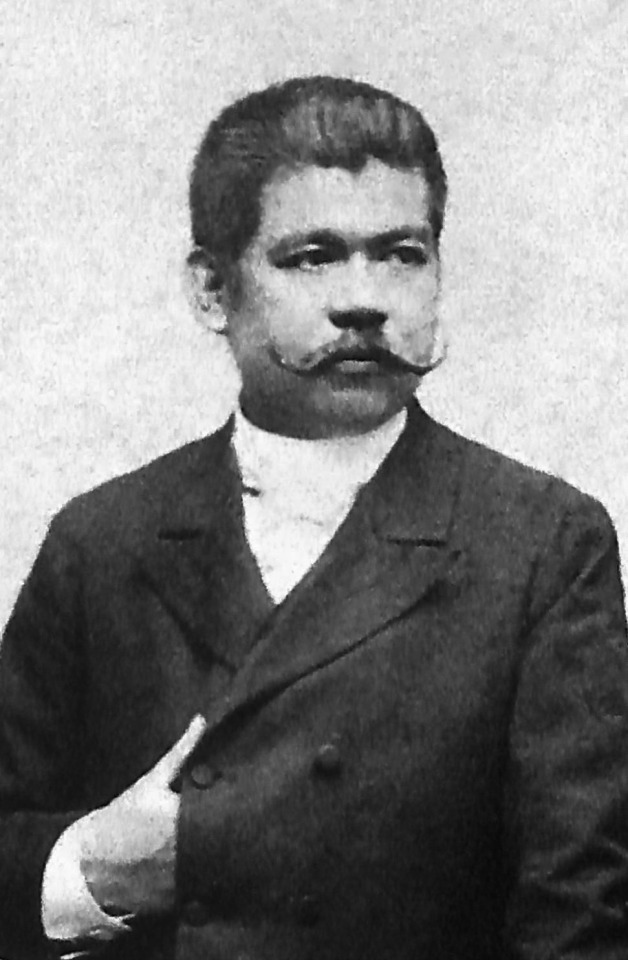
American Regime:
Nick Joaquin - was a Filipino writer, historian and journalist who wrote about Philippine history and culture during the American colonial period. He is best known for his works such as The Woman Who Had Two Navels and May Day Eve.
Paz Marquez Benitez - was a Filipino writer who is considered the first Filipino woman to publish a short story in English. Her short story, "Dead Stars", is considered a landmark in Philippine literature in English and is widely anthologized.
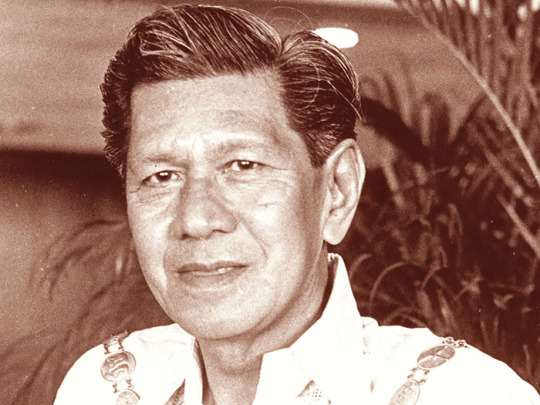
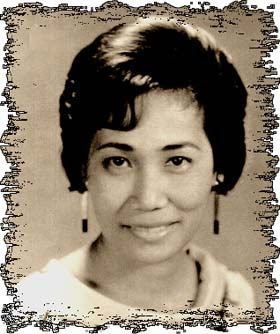
Japanese:
Carlos Bulosan - was a Filipino writer and labor activist who wrote about the struggles of Filipino migrant workers in the United States during the Japanese occupation of the Philippines. His most famous work, America Is in the Heart, is a semi-autobiographical novel about his experiences as a migrant worker in the United States.
Jose Garcia Villa - was a Filipino poet, writer, and painter who wrote during the Japanese occupation of the Philippines. His works are known for their formal experimentation and use of modernist techniques.
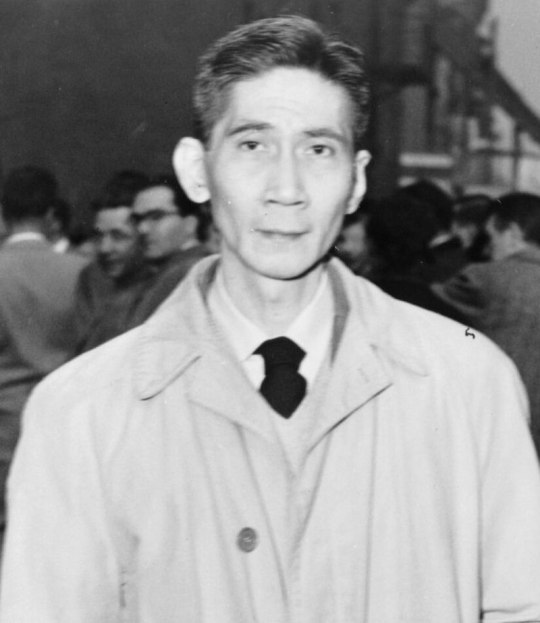
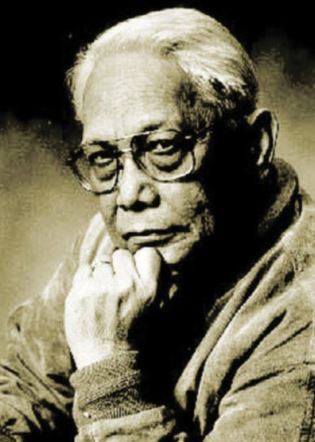
Philippine Literature in English:
N.V.M. Gonzalez - was a Filipino writer and one of the pioneers of Philippine literature in English. He is best known for his short stories and novels that depict the lives of ordinary Filipinos in rural and urban settings.
F. Sionil Jose - is a Filipino writer and journalist who is known for his novels that explore the themes of social injustice, poverty, and colonialism. His most famous work, the Rosales Saga, is a five-novel series that traces the history of the Philippines from Spanish colonialism to the present day.
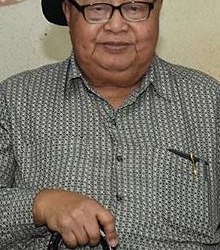
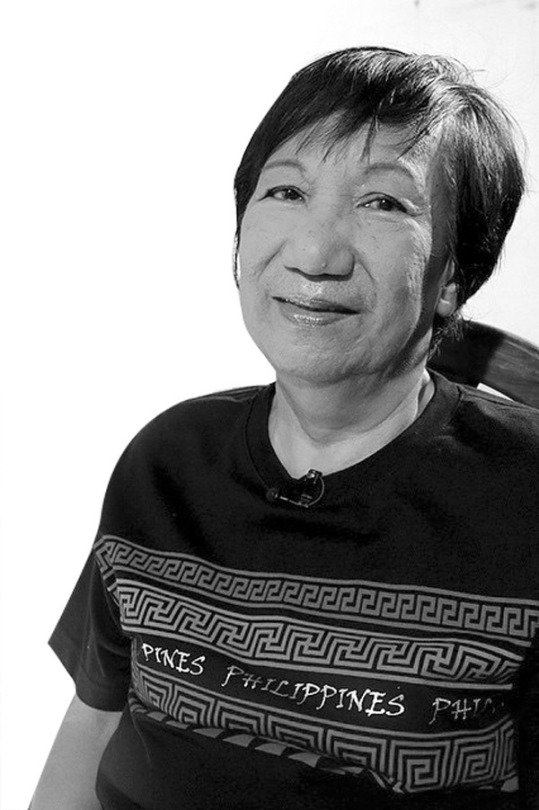
3 notes
·
View notes


